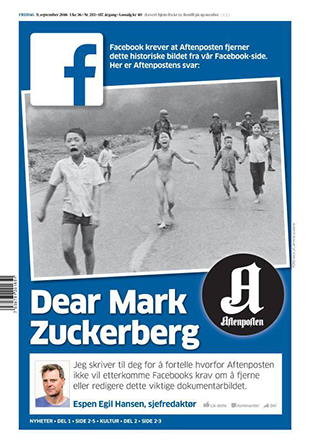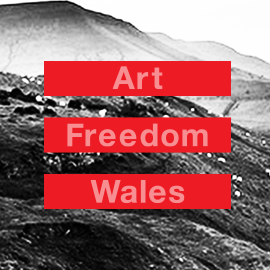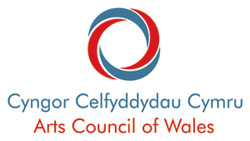9 Aug 2017 | Index in the Press
Google has fired an employee who wrote a controversial memo opposed to diversity programmes and hiring practices. The company’s chief executive said the “offensive” text advanced “harmful gender stereotypes”. Did Google do the right thing? Read the full article
9 Sep 2016 | Campaigns, Campaigns -- Featured, Norway, Statements
 Index on Censorship, a global organisation that campaigns for free expression, fully supports the action of Norway’s Aftenposten newspaper in refusing a request from Facebook to remove an iconic photo of the Vietnam War that features a naked child running from a napalm attack.
Index on Censorship, a global organisation that campaigns for free expression, fully supports the action of Norway’s Aftenposten newspaper in refusing a request from Facebook to remove an iconic photo of the Vietnam War that features a naked child running from a napalm attack.
The social media platform later reversed its decision.
Aftenposten, Norway’s largest newspaper by circulation, said in a front-page editorial on 9 September that Facebook emailed the newspaper to demand the removal of a documentary photograph from the Vietnam War made by Nick Ut of The Associated Press. “Less than 24 hours after the email was sent, and before I had time to give my response, you intervened yourselves and deleted the article as well as the image from Aftenposten’s Facebook page,” Aftenposten’s editor in chief said in the editorial, written as a letter to Facebook CEO Mark Zuckerberg.
Index is shocked and disturbed by the behaviour of Facebook in this matter. We understand that Facebook, as a private company, has the right to impose terms of service as it sees fit and this includes policies with which we may not agree – such as its policies on nudity. However, its actions in this case demonstrate the crucial role that context plays in assessing what content should be removed. As Aftenposten editor Espen Egil Hansen writes: Facebook rules “don’t distinguish between child pornography and famous war photos”.
Furthermore, Facebook’s decision undermines media freedom by removing from an independent media outlet’s own page an image and article that that organisation has made the considered decision to publish. This calls into question the entire model of Facebook as a social media platform. If Index, for example, is not able to freely publish articles on our own Facebook page that we feel to be important, what purpose is there for us to use Facebook at all? Facebook ceases in this scenario to be a champion, or even a conduit, of free speech.
Finally, Facebook should be a platform for debate. We understand from Aftenposten that when Norwegian author Tom Egeland challenged a decision by Facebook to remove the picture of Phan Thi Kim Phuc from a post he made, he was excluded from Facebook. This, again, flies in the face of the notion that Facebook is a platform for open debate.
Open debate, including the viewing of images and stories that some people may find offensive, is vital for democracy. Platforms such as Facebook can play an essential role in ensuring this. We urge Facebook not just to overturn this decision but to renew its commitment to providing a platform that allows for public debate. This means supporting the free sharing of legal information no matter how offensive it may appear to others.
3 Oct 2014 | Events
 Index on Censorship is delighted to announce the third in a series of online conversations about artistic freedom of expression in Wales.
Index on Censorship is delighted to announce the third in a series of online conversations about artistic freedom of expression in Wales.
This conversation forms part of our ArtFreedomWales programme looking at how artistic freedom is regarded, debated and promoted across the arts sector in Wales – in the press, by artists, by the public, by funders and policy makers.
Young Artists in Wales – opportunities and obstacles to expression?
Online conversation with:
- Chelsey Gillard – Critic
- Sian Rowlands – Dancer
- Elgan Rhys – Actor & Writer
- Cerian Wilshere-Davies – Mess up the Mess Youth Theatre Group
- Melody Patry – Senior Advocacy Officer, Index on Censorship
When: November 3rd 14.00
Where: Take part in the Google Hangout here
What are the issues in Wales? What are the opportunities? What are the obstacles? What has the right to freedom of expression got to do with Wales’ major cultural debates and policies: bi-lingualism, engaging young people and ethnically diverse voices, tackling poverty, maximising on new cultural infrastructure, having an international voice?
We want to hear from everyone producing and participating in the arts in Wales who has something to say about freedom of expression. You will be able to email and tweet questions to the panel during the discussion.
This is the third of four events on artistic freedom of expression in Wales that we are live-streaming, leading up to a national symposium – a Free Speech Hearing for Wales – at Chapter Arts Centre in Cardiff (27th November).
The first online conversation featuring leading artists from across Wales and the second online hangout which took place in Welsh are both available to watch here.

Arts Council of Wales supports this programme
22 Aug 2014 | Events

YOU CAN NOW WATCH THIS CONVERSATION AND READ A FULL ENGLISH TRANSCRIPT HERE.
Index on Censorship is delighted to announce the second in a series of online conversations about artistic freedom of expression in Wales.
This conversation forms part of our ArtFreedomWales programme looking at how artistic freedom is regarded, debated and promoted across the arts sector in Wales – in the press, by the public, by funders and policy makers.
Artists working in Welsh – opportunities and obstacles to expression?
Online conversation with:
- Mari Emlyn – Chief Executive Officer Galeri
- Arwel Gruffydd – Artistic Director Theatr Genedlaethol Cymru
- Bethan Jones Parry – Broadcaster, Journalist and Writer
- Bethan Marlow – Playwright and Storyteller
- Iwan Williams – Independent Creative Producer and Development Officer for Creadigol Mentrau Iaith Cymru
Where: Catch up with the Google Hangout here
Please note: this conversation will be in Welsh with an English summary at the end.
This is the second of four events on artistic freedom of expression in Wales that we are live-streaming, leading up to a national symposium at Chapter Arts Centre in Cardiff (27th November). You will be able to email and tweet questions to the panels during the discussion.
What are the issues in Wales? What are the opportunities? What are the obstacles? What has the right to freedom of expression got to do with Wales’ major cultural debates and policies: bi-lingualism, engaging young people and ethnically diverse voices, tackling poverty, maximising on new cultural infrastructure, having an international voice?
We want to hear from everyone producing and participating in the arts in Wales who has something to say about freedom of expression.
The first online conversation which took place in July featured Tim Price (playwright), Kathryn Gray (poet and writer), Lisa Jen (musician/actor/writer) and Leah Crossley (artist). See it here https://www.youtube.com/watch?v=pNv1J0_jRQY

Arts Council of Wales supports this programme

 Index on Censorship, a global organisation that campaigns for free expression, fully supports the action of Norway’s Aftenposten newspaper in refusing a request from Facebook to remove an iconic photo of the Vietnam War that features a naked child running from a napalm attack.
Index on Censorship, a global organisation that campaigns for free expression, fully supports the action of Norway’s Aftenposten newspaper in refusing a request from Facebook to remove an iconic photo of the Vietnam War that features a naked child running from a napalm attack.
